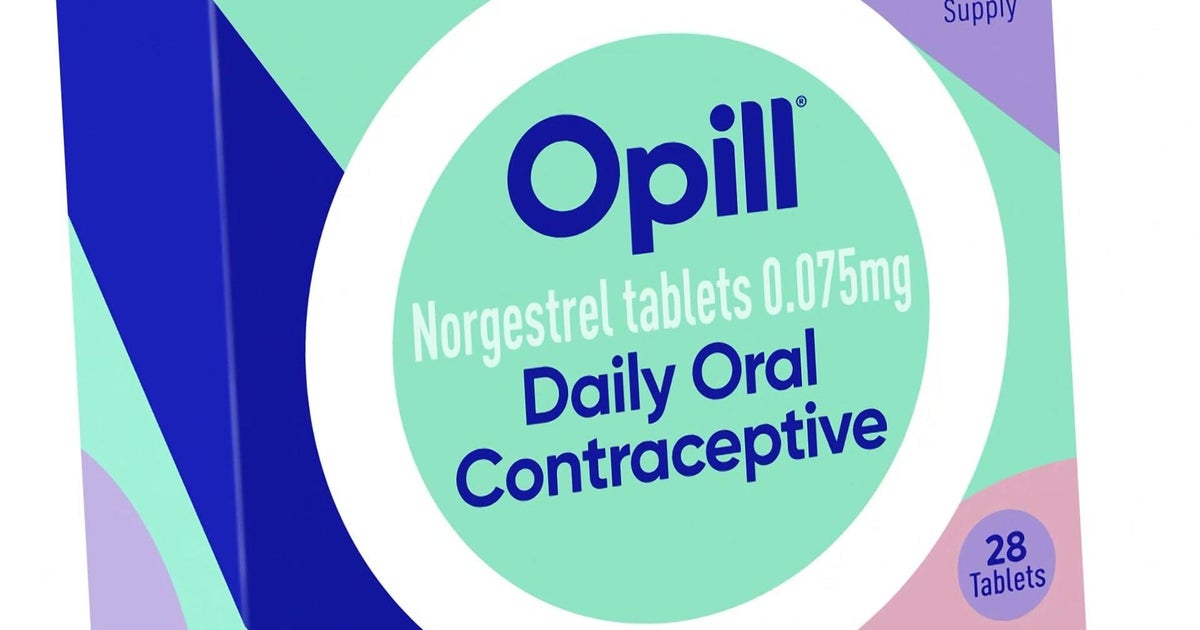Post-Roe America: How OTC Birth Control Is Reshaping Reproductive Healthcare

Table of Contents
Increased Accessibility and Affordability of Birth Control
Before the wider availability of OTC birth control, access to contraception was often limited by cost and insurance coverage. Many women, particularly those with lower incomes or lacking health insurance, faced significant barriers to obtaining essential birth control methods. The expense of doctor's visits, prescriptions, and the birth control itself created a significant hurdle for effective family planning.
OTC birth control dramatically alters this landscape. By removing the need for a doctor's visit and prescription, it eliminates significant financial and logistical hurdles. This increased accessibility extends to a broader range of women, regardless of their socioeconomic status or insurance coverage.
- Lower cost: OTC birth control is generally significantly cheaper than prescription options.
- Eliminates doctor visits and prescriptions: This saves time, money, and reduces the potential for delays in accessing contraception.
- Improved convenience and privacy: Women can purchase OTC birth control discreetly and conveniently, enhancing personal autonomy.
- Wider reach in underserved communities: This accessibility is particularly impactful in areas with limited access to healthcare providers.
Empowering Women and Self-Determination
The shift towards OTC birth control represents a significant change in power dynamics. Women are now empowered to take control of their reproductive health without relying on intermediaries like healthcare providers or insurance companies. In a context where abortion access is restricted, this autonomy is critically important for bodily autonomy and self-determination.
- Greater control over family planning decisions: Women can make informed choices about their reproductive health without external constraints.
- Reduced reliance on healthcare providers: This reduces potential barriers and delays in accessing contraception.
- Increased autonomy in managing reproductive health: Women are empowered to proactively manage their reproductive health.
- Potential to reduce unintended pregnancies: Easier access to effective contraception can lead to a significant decrease in unintended pregnancies.
Addressing Concerns and Misconceptions Surrounding OTC Birth Control
While OTC birth control offers significant advantages, it's important to address potential concerns. Some worry about its safety, efficacy, and the potential for misuse. However, it's crucial to understand that OTC medications undergo rigorous testing and adhere to stringent safety standards.
- Addressing safety concerns and efficacy rates: The efficacy rates of OTC birth control methods are clearly stated and well-researched, comparable to many prescription options. Safety data is readily available.
- Importance of following instructions carefully: Like all medications, proper use is critical. Carefully reading and following the instructions is essential for maximum effectiveness and safety.
- The role of education and responsible use: Comprehensive education about OTC birth control methods is crucial to ensure responsible use and minimize potential risks.
- Dispelling myths and misinformation: Combating misinformation about the safety and effectiveness of OTC contraception through accurate public health campaigns is vital.
The Role of Public Health Initiatives in Supporting OTC Birth Control Access
Public health initiatives play a vital role in ensuring the success of increased OTC birth control access. Government programs and public health campaigns can significantly improve awareness, education, and responsible use.
- Government programs to subsidize OTC birth control: Subsidies can make OTC birth control even more accessible to low-income individuals.
- Public health campaigns promoting responsible use: These campaigns should provide accurate information about different methods and address potential misconceptions.
- Community outreach programs providing education and resources: Community-based organizations can play a crucial role in disseminating information and supporting access.
- The role of telehealth in expanding access: Telehealth consultations can provide guidance and support for women seeking information about OTC birth control options.
Conclusion
Over-the-counter birth control is significantly reshaping reproductive healthcare in post-Roe America. By increasing accessibility and affordability, empowering women, and promoting self-determination, it offers a vital tool for family planning. While concerns surrounding safety and responsible use must be addressed through education and public health initiatives, the benefits of OTC birth control are undeniable. Learn more about available over-the-counter birth control options and take control of your reproductive health journey in post-Roe America. Access to affordable birth control and accessible reproductive healthcare is crucial for ensuring the well-being of women across the country.

Featured Posts
-
 Robin Roberts Announces Addition To Her Family On Gma
May 21, 2025
Robin Roberts Announces Addition To Her Family On Gma
May 21, 2025 -
 Quick Facts About Wayne Gretzky His Life And Career
May 21, 2025
Quick Facts About Wayne Gretzky His Life And Career
May 21, 2025 -
 The Trump Presidency And The Surge In American Applications For European Citizenship
May 21, 2025
The Trump Presidency And The Surge In American Applications For European Citizenship
May 21, 2025 -
 Recent D Wave Quantum Qbts Stock Market Activity A Deep Dive
May 21, 2025
Recent D Wave Quantum Qbts Stock Market Activity A Deep Dive
May 21, 2025 -
 Late Lazio Equalizer Denies Juventus Victory In Serie A Clash
May 21, 2025
Late Lazio Equalizer Denies Juventus Victory In Serie A Clash
May 21, 2025
Latest Posts
-
 The Impact Of Kartel On The Rum Industry A Stabroek News Analysis
May 22, 2025
The Impact Of Kartel On The Rum Industry A Stabroek News Analysis
May 22, 2025 -
 Understanding Kartels Influence On Guyanese Rum Culture
May 22, 2025
Understanding Kartels Influence On Guyanese Rum Culture
May 22, 2025 -
 Kartel And Rum Culture In Guyana A Stabroek News Perspective
May 22, 2025
Kartel And Rum Culture In Guyana A Stabroek News Perspective
May 22, 2025 -
 The Beenie Man Effect Transforming It In New York City
May 22, 2025
The Beenie Man Effect Transforming It In New York City
May 22, 2025 -
 Beenie Mans It Strategy A New York Power Play
May 22, 2025
Beenie Mans It Strategy A New York Power Play
May 22, 2025
